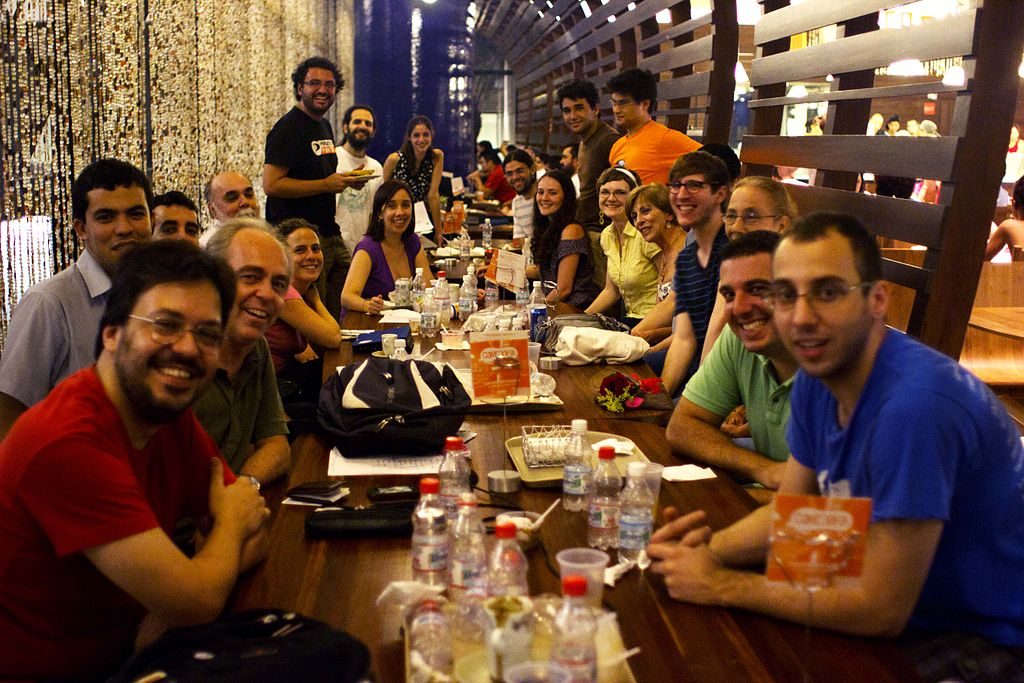Nones are finding ways to meet that are secular in nature
To say it aloud and wrap it in a religious setting probably brings to mind the opening scenes of The Sound of Music.
But as the recent Religious Landscape Study performed by the Pew Research Center reveals, the number of those who don’t associate themselves with any religious group (they have becomes known as “nones”) continues to grow.
In all, 23% of adults and 35% of millennials report themselves as “nones” and have become the second largest “faith-based demographic” in the United States, reports the Huffington Post.
Historically, communities have congregated and otherwise gathered around their churches, synagogues, and other religious buildings, institutions and celebrations. Further, many societies have borrowed from religion to establish laws and other moral codes.
So how do “nones” cultivate this sense of community, and do they feel aimless when constructing a moral and ethical code?
First, “nones” are finding ways to meet that are secular in nature. For example, humanist Bart Campolo leads what he calls a Sunday Assembly in Los Angeles. Participants “go to the movies…ride roller coasters…and smile when [their] significant others dim the lights”. Campolo efforts to provide a missional community of love where people truly experience human emotions. He believes this allows people to honestly feel emotions at funerals, weddings and other such ceremonies. He wants to heal and fix lives and make “happier people”. He didn’t just “want them to think it. [He] wanted them to feel it in their bones.”
Other “nones” are gathering at Jeffersonian Dinners, which are events reminiscent of those thrown by Thomas Jefferson at his home. A current event, topic or cause is discussed, and people leave with a strengthened resolve or a changed mind and the sense that they participated in a community activity.
Many, but not all, “nones” consider themselves Atheists. Message board chatter around this topic reveals that these “nones” are not concerned about establishing a moral code without the help of organized religion. In fact, as one might expect, they think that religion hinders the development of morals and ethics because of its “top-down” design. They contend that one need not worry about what a God (who they do not believe exists) says about morality, when it is simple to consider logically how to treat others with dignity and respect.
As the population grows, the percentage of “nones” promises to shrink with a nod to simple mathematics, but their raw numbers will continue to increase. It remains to be seen how their secular means of cultivating community will evolve.

